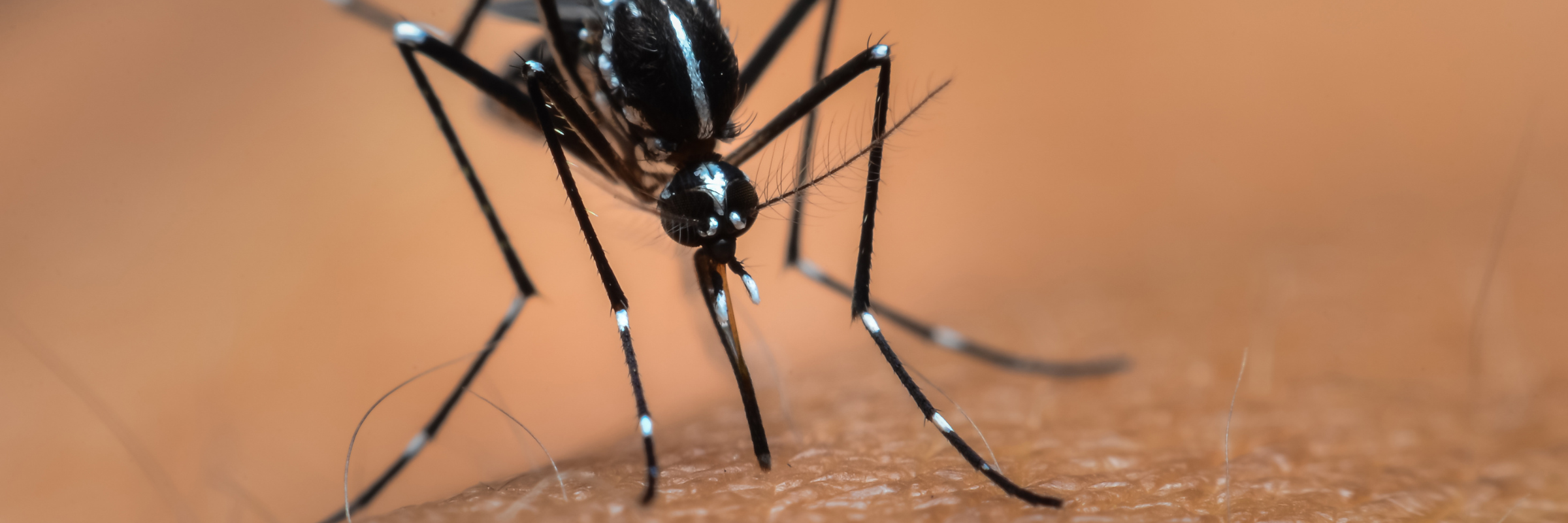Successful clinical study for an innovative dengue vaccine, supervised by UNIL professor

A global health priority
Global warming and urbanisation are facilitating the spread of the tiger mosquito, responsible for dengue fever. The World Health Oorganisation (WHO) estimates that almost half the world's population now lives in high-risk areas. Cases of dengue fever have increased eightfold in 20 years, leading to one hospitalisation per minute and two deaths per hour. Having an effective vaccine is therefore a priority for global health.
Two dengue vaccines are currently available in Europe, but they are unsatisfactory in terms of safety and efficacy. Their technology is based on the production of antibodies which, in certain cases, can increase the severity of the disease when infected by the natural virus.
New approach and nano-innovations
The tested vaccine, PepGNP-Dengue, was developed in the UK by Emergex Vaccines. It consists of a nanodose of synthetic fragments of the virus fused to gold nanoparticles. Another special feature is that it is administered under the skin using a micro-needle. The vaccine relies on T lymphocytes, which are responsible for cellular immunity, to eliminate cells infected by the virus and prevent it from replicating.
The aim of phase 1 was to determine whether the vaccine did not induce severe undesirable side-effects in non-diseased volunteers.
A total of 26 participants aged between 18 and 45 were vaccinated in Lausanne in 2021, and were followed for six months until March 2022. The results of this clinical study, supervised by Blaise Genton, Honorary Professor at UNIL, and coordinated by Dr Alix Miauton, Research Fellow at Unisanté, were published in January 2024 in The Lancet eBioMedicine.
Positive results without adverse effects
During the trial, no serious adverse events related to the vaccine occurred. Local side effects (such as pain at the injection site) were the most frequently reported. Immunological results indicate that PepGNP-Dengue can stimulate a specific cellular response against the dengue virus without producing antibodies.
These findings encourage further investigation into this innovative vaccine candidate and hold promise for other diseases where cellular immunity is important. A potential COVID-19 vaccine based on the same technology has also been tested by Unisanté on 26 participants, with results currently being published.
